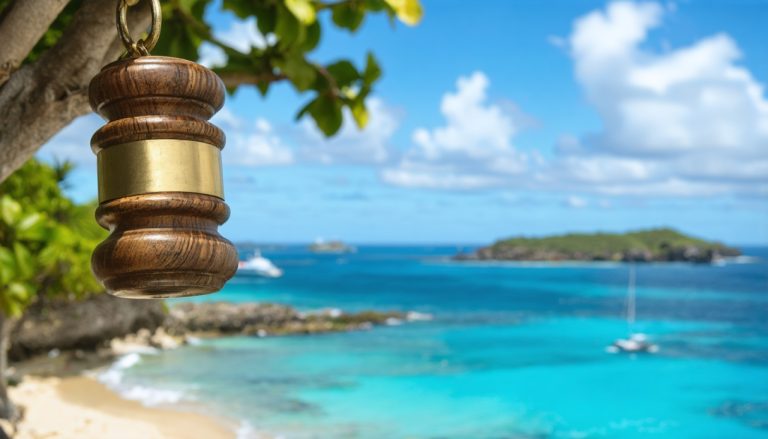
- Liechtenstein, nestled between Switzerland and Austria, plays a significant role in international environmental protection, despite its small size.
- The Rhine River, a critical European waterway bordering Liechtenstein, benefits from the principality’s proactive stance on safeguarding transboundary river systems.
- As an active member of the International Commission for the Protection of the Rhine (ICPR), Liechtenstein contributes to frameworks for water quality, flood management, and ecological restoration.
- The nation champions sustainability by aligning its national laws with international agreements, influencing environmental management across Europe.
- Liechtenstein’s collaborations highlight the importance of shared responsibility in addressing climate change and pollution through international law.
- The principality exemplifies how small countries can lead efforts in global sustainability, emphasizing the power of unity and cooperation.
Nestled between Switzerland and Austria, the small but strikingly beautiful Principality of Liechtenstein sits like a well-kept secret, shimmering under the European sun. Despite its size, Liechtenstein has become a notable figure in the realm of international law, particularly in the arena of environmental protection.
The Rhine River, one of Europe’s major waterways, flows vigorously along the country’s western border. Recognizing the crucial role this waterway plays in ecosystems and human livelihoods, Liechtenstein has been at the forefront of international environmental treaties aimed at preserving and enhancing the quality of transboundary river systems. This landlocked nation, while tiny in geographical expanse, has adopted a robust stance on sustainability, championing collaborative efforts to safeguard the environment.
In a landscape characterized by dramatic Alpine summits and lush valleys, Liechtenstein has managed to cut a significant niche for itself through the International Commission for the Protection of the Rhine (ICPR). As an integral member, Liechtenstein has not only adhered to but also significantly contributed to the international legal frameworks that aim to protect water quality, manage flood risks, and restore ecological health in this vital river and its tributaries.
Deeply invested in the principles of sustainability, Liechtenstein upholds stringent environmental standards by aligning national laws with international agreements. As the nation navigates these complex waters, its efforts ripple through the entire European continent, demonstrating how small nations can wield substantial influence in global environmental management.
Vividly, the principality embodies its motto of “strength through unity”, partnering with neighboring countries to address the pressing challenges of climate change and pollution. These collaborations, underpinned by international law, emphasize the shared responsibility of preserving our planet. Importantly, Liechtenstein showcases how countries, irrespective of size, can lead by example, constructing a sustainable future through diligent legal and diplomatic efforts.
As the sun sets over the Alps, casting golden hues across the horizon, Liechtenstein stands as a beacon of cooperative environmental governance. The principality’s commitment to international law underscores the potential of collective action in protecting the natural world. It inspires, reminding us that the path to a sustainable future lies in our ability to see past borders and work collaboratively for our shared home.
Takeaway Message: Liechtenstein’s strategic engagement in international environmental law showcases the power of cooperation and legal frameworks in protecting natural resources. This small nation’s bold steps set a precedent for how unified global efforts can foster sustainability and environmental preservation.
Discover the Unsung Environmental Leader: Liechtenstein’s Secret to Sustainability
Liechtenstein’s Role in Environmental Protection
Despite its diminutive size, Liechtenstein’s outsized role in environmental protection, particularly concerning the Rhine River, offers valuable lessons in sustainability and international cooperation.
Key Facts and Insights
1. International Leadership in Environmental Protection:
Liechtenstein is a proactive member of the International Commission for the Protection of the Rhine (ICPR). This organization focuses on the harmonization of water protection measures, ecological restoration, and flood prevention across multiple countries reliant on the river system (FAO).
2. Sustainable Development Goals (SDGs):
Aligned with the United Nations’ SDGs, Liechtenstein places strong emphasis on clean water (SDG 6) and climate action (SDG 13), advocating for sustainable water management and resilient infrastructure to combat climate change.
3. Energy Transition:
The country is setting ambitious targets for renewable energy, seeking to reduce its carbon footprint by advancing solar, wind, and hydroelectric power generation. Over 20% of its total energy consumption currently comes from renewables, and it aims to increase this figure steadily (International Energy Agency).
4. Regulatory Framework:
Liechtenstein maintains rigorous environmental laws that categorically limit industrial pollution and mandate environmental impact assessments, ensuring that economic growth does not come at the expense of ecological preservation.
How-To Steps for Effective Environmental Governance
– Collaborative Policy-Making: Forge international alliances, exemplified by Liechtenstein’s work with the ICPR, to collectively address transboundary environmental challenges.
– Adoption of Technology: Leverage advanced technology and data analytics to monitor water quality and predict potential ecological risks.
– Community Engagement: Involve local communities in conservation efforts through educational programs and public awareness campaigns.
Controversies and Limitations
– Economic Balancing Act: Some critics argue that Liechtenstein faces challenges in balancing economic expansion with its environmental commitments, especially given its reliance on the financial sector, which dominates the economy.
– Limited Resources: As a small nation, Liechtenstein’s capacity to unilaterally drive global environmental policy is inherently limited. Its influence is amplified only through strategic partnerships.
Top Questions Readers Might Have
– What specific measures does Liechtenstein implement to maintain the Rhine River’s health?
The country uses a mix of legislative tools and collaborative international agreements to regulate industrial discharge, improve water treatment facilities, and promote biodiversity along the river.
– How does Liechtenstein handle the threat of climate change?
Beyond international treaty obligations, Liechtenstein invests significantly in energy efficiency, conservation innovations, and public transportation solutions to mitigate greenhouse gas emissions.
Actionable Recommendations
– International Partnerships: Small nations and regions can replicate Liechtenstein’s model by engaging in cross-border environmental initiatives to leverage collective strengths.
– Focus on Education: Cultivate environmental stewardship from a young age to build future generations of environmentally conscious citizens.
– Renewable Investments: Allocate resources to develop and integrate renewable energy solutions that are tailored to geographic and economic contexts, similar to Liechtenstein’s focus on solar and hydro power.
This small yet impact-driven principality serves as a paradigm for how environmental stewardship, backed by international collaboration and robust legal frameworks, can emerge as powerful forces in securing a sustainable future for all.



